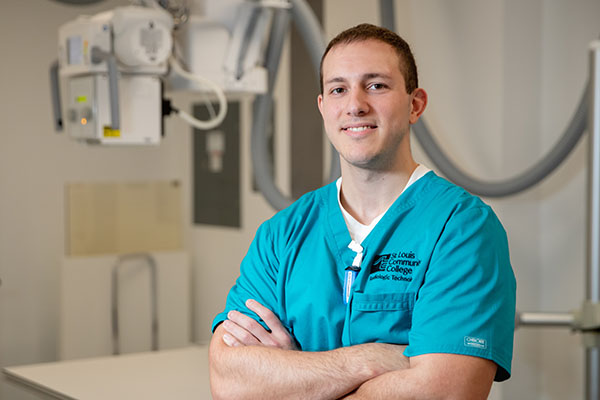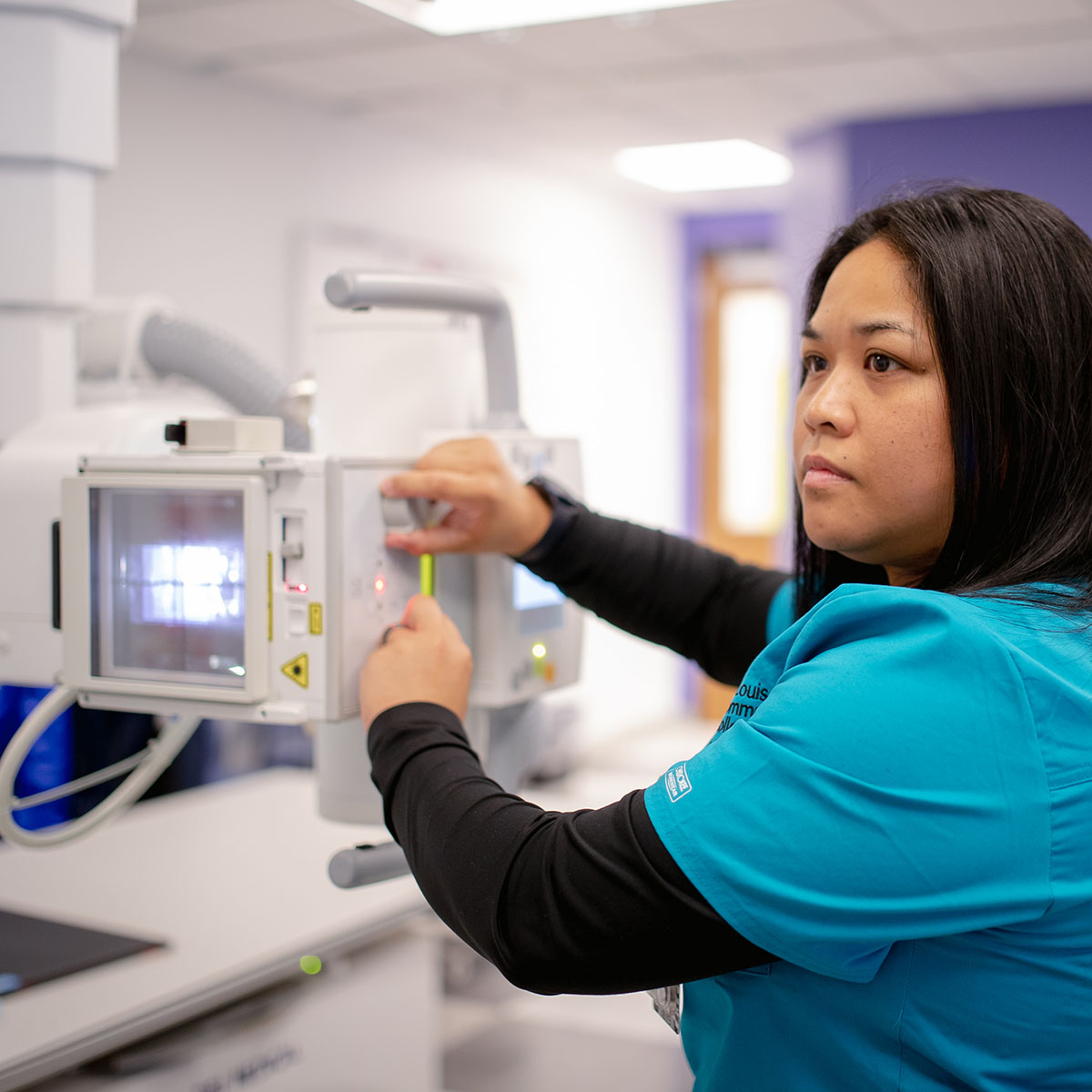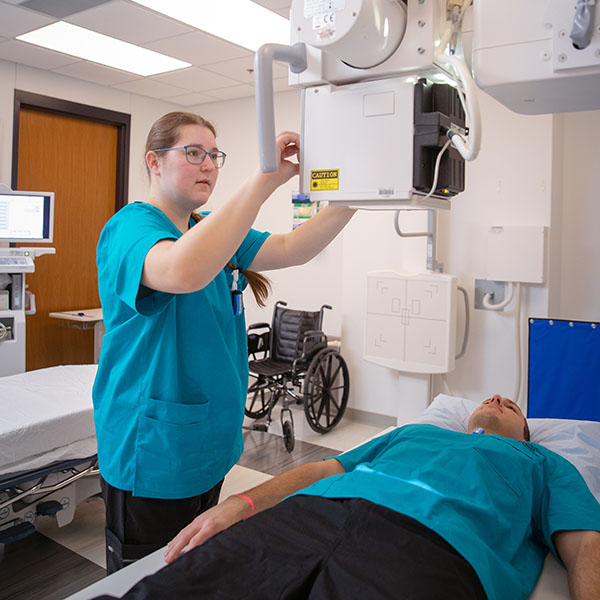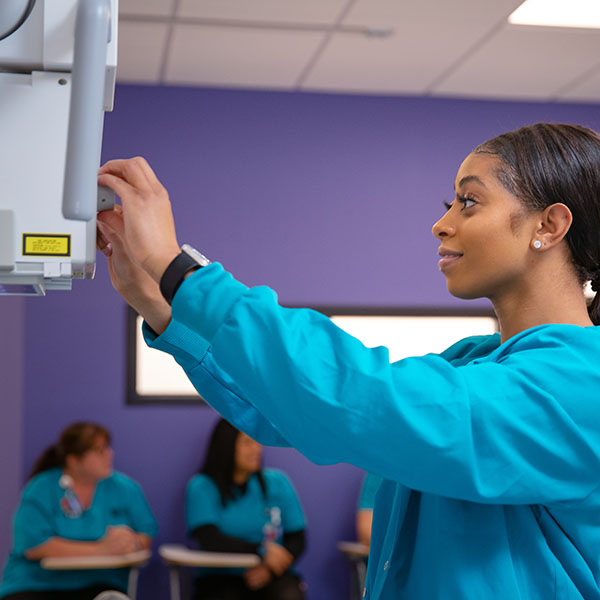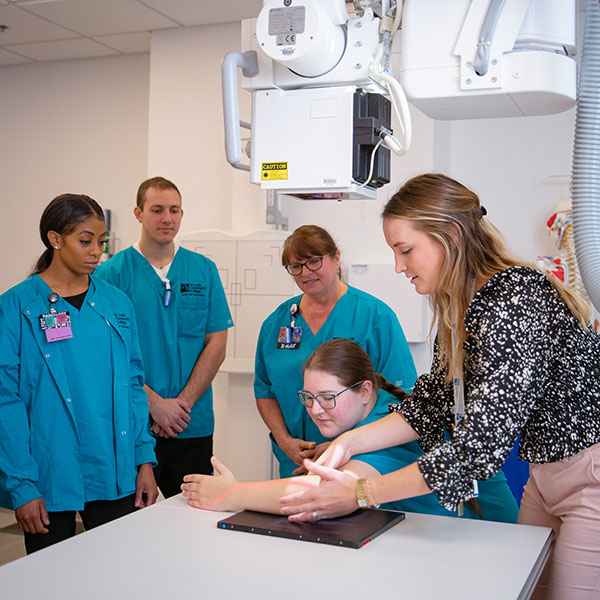- All applicants must be admitted to St. Louis Community College.
- All applicants must complete the following requirements before completing a radiologic
technology program application.
- BIO:111 Introduction to Biology I (or higher) or CHM:101 Fundamentals of Chemistry I (or higher) with a grade of "C" or better within five calendar years of applying to the program.
- Minimum Math and Science cumulative GPA: 2.5 or higher on a 4.0 scale for all math and science courses completed at the 100-level or above.
- Minimum cumulative GPA: Student must have and maintain a 2.5 or higher on a 4.0 scale GPA for all college work regardless of the number of college credits earned.
- Must provide documentation of a minimum of eight hours of job shadowing in a hospital-based, general radiology (X-ray) department. Job shadowing must be completed prior to application to the program.
- Note: Admission and degree requirements are subject to change without advance notice.
- Completion of BIO 207, with a grade of “C” or better, is required before enrollment into the radiologic technology (XRT) concentration courses.
- Completion of BIO 208, MTH 140 (or MTH 140S or higher) (except MTH 161, MTH 165, MTH 166, or MTH 180), COM 101, ENG 101, PSY 200, and a Social & Behavioral Science course that meets the Civics requirement, prior to beginning the program is highly recommended, but not required. All courses must be completed with a grade of “C” or better. If incomplete at the time of program admission, the courses must be taken concurrently with concentration courses to complete the program in a timely manner.
- All applicants must complete a criminal background check and drug screen through a college-approved background screening company prior to the beginning of the fall semester of admission. The student will be responsible for the cost of the background check and drug screen. Students who do not pass the criminal background check and/or drug screen may be prohibited from participating in clinical education. This will prevent the student from being able to complete all program requirements for graduation. This process will begin after the program orientation meeting in May.
Students are required to complete a health history, immunization record, physical exam, essential functions acknowledgment form, criminal background check, drug screen and American Heart Association Basic Life Support (BLS) for Healthcare Providers CPR certification prior to the first day of class. Completing these requirements should begin immediately following the mandatory program orientation meeting in May.
Job Shadowing
All program applicants must provide documentation of a minimum of eight hours of job shadowing in a hospital general radiology (X-ray) department. The completed job shadowing documentation form must be submitted at the time of program application.
The student arranges this on their own by contacting the human resources department of the hospital of their choice.
Shadowing at clinics, physician offices, outpatient centers, surgery centers, etc. will not be accepted because the purpose of this experience is to expose students to the environment they will encounter throughout the program.
The eight hours of shadowing may be done at one time, or at two different hospitals, four hours at each facility.
A maximum of four hours may be completed at a children’s hospital. The remaining four hours would need to be completed at a non-pediatric hospital.
